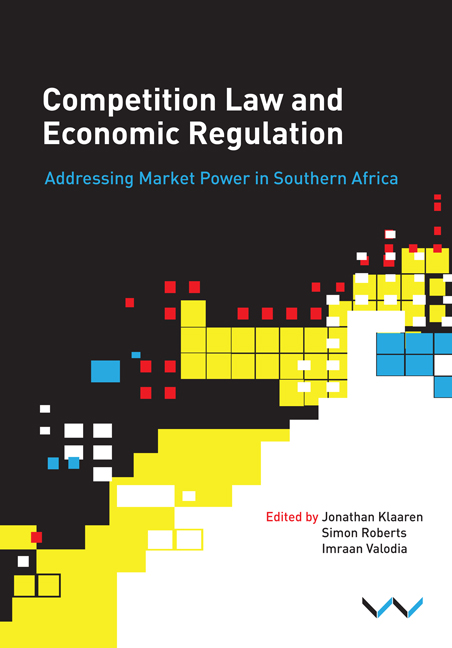 Competition Law and Economic Regulation in Southern Africa
Competition Law and Economic Regulation in Southern Africa Book contents
- Frontmatter
- Contents
- Tables, figures and boxes
- Acknowledgements
- Acronyms and abbreviations
- Introduction: The development of competition and regulation in southern Africa
- Part One Cartel law enforcement
- 1 Penalties and settlements for South African cartels: An economic review
- 2 Cartel likelihood, duration and deterrence in South Africa
- 3 Cartel enforcement in the southern African neighbourhood
- Part Two Issues in competition and regulation
- Part Three Competition and regulation in reshaping African markets
- Part Four Conclusion
- Contributors
- Index
2 - Cartel likelihood, duration and deterrence in South Africa
from Part One - Cartel law enforcement
Published online by Cambridge University Press: 23 March 2018
- Frontmatter
- Contents
- Tables, figures and boxes
- Acknowledgements
- Acronyms and abbreviations
- Introduction: The development of competition and regulation in southern Africa
- Part One Cartel law enforcement
- 1 Penalties and settlements for South African cartels: An economic review
- 2 Cartel likelihood, duration and deterrence in South Africa
- 3 Cartel enforcement in the southern African neighbourhood
- Part Two Issues in competition and regulation
- Part Three Competition and regulation in reshaping African markets
- Part Four Conclusion
- Contributors
- Index
Summary
INTRODUCTION
One of the preoccupations of competition authorities around the world is the investigation and prosecution of hard-core cartels. Cartels form when firms in a horizontal relationship (one between competitors) cooperate instead of compete. Saved from the burden of rivalry, firms have market power to charge higher prices and can collectively constrain supply, which would not be possible under conditions of competition. This has a negative impact on the cartel's customers and ultimately on consumers. Cartel conduct is therefore considered the most deplorable of all anticompetitive conduct engaged in by firms, reflected in the manner in which competition authorities around the world deal with this conduct. South African competition law is no different in that cartel conduct is outlawed in the Competition Act (No. 89 of 1998, as amended).
Enforcing anti-cartel laws forms the backbone of competition policy worldwide. A competition authority must put in place measures aimed not only at prosecuting cartels, but also at deterring future cartel conduct. Enforcing these laws must always be twofold. First, enforcement means detecting and prosecuting existing cartels. Second, the authority must deter future cartels either by the same firms (specific deterrence) or by other firms (general deterrence). There are several studies dedicated to revealing the immediate impact of prosecuting cartels (e.g., Connor, 2014; Khumalo, Mashiane and Roberts, 2014; Mncube, 2013). This study focuses primarily on deterring future cartels.
In studying cartel deterrence, this chapter relies on the cartel decision-making equation which shows that firms will be deterred from engaging in cartel conduct only if the expected penalty is more than the additional profits and other benefits derived from collusion. The expected penalty is the product of the actual penalty imposed after successful prosecution and the probability of detection, taking into account the appropriate discount rate. For a particular penalty amount, as the probability of detection increases from zero to one, the expected penalty approaches the actual penalty. The value of the penalty and the probability of detection can be influenced by various factors, some of which can in turn be influenced by the competition authorities.
- Type
- Chapter
- Information
- Competition Law and Economic Regulation in Southern AfricaAddressing Market Power in Southern Africa, pp. 49 - 70Publisher: Wits University PressPrint publication year: 2017


